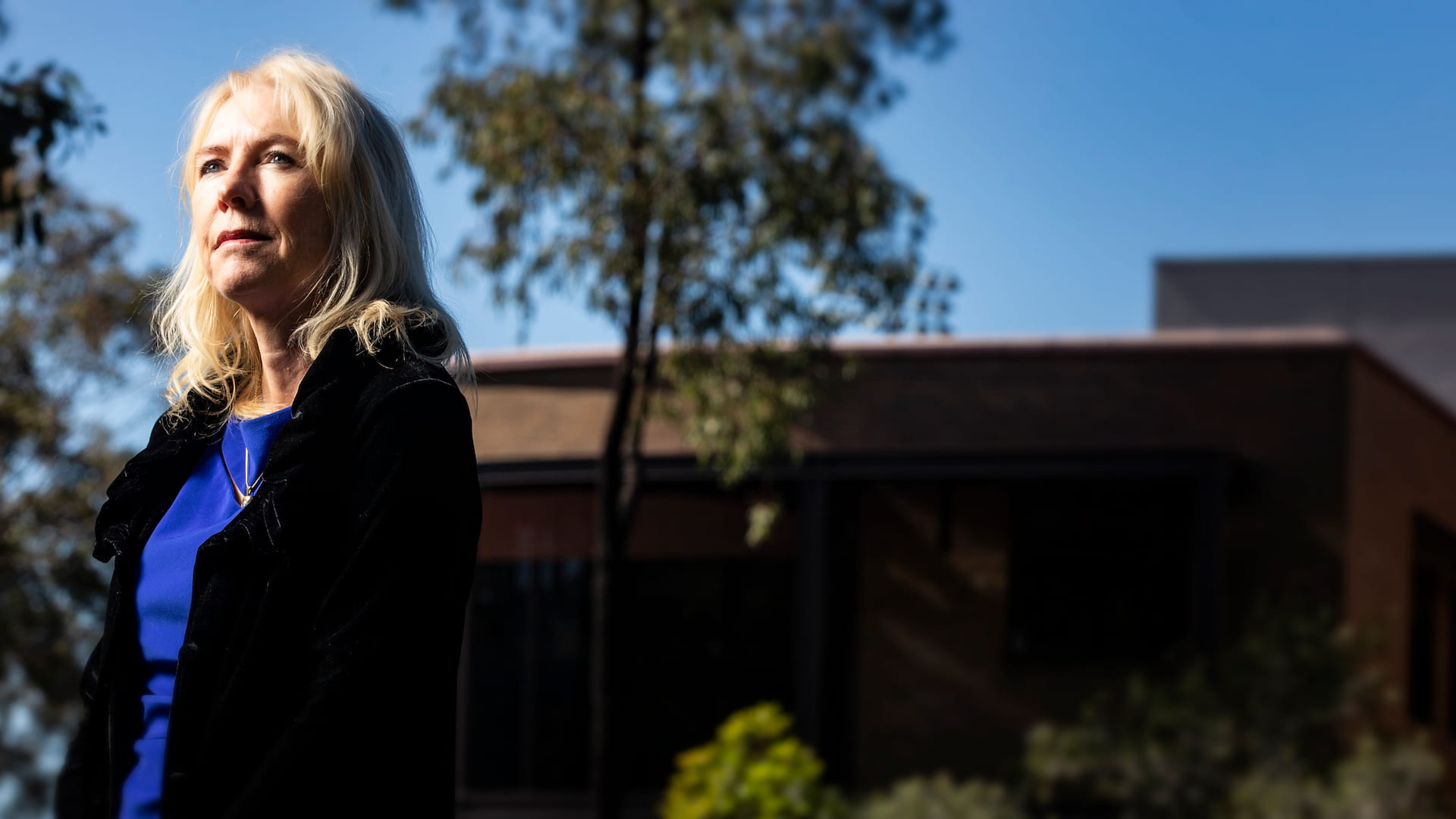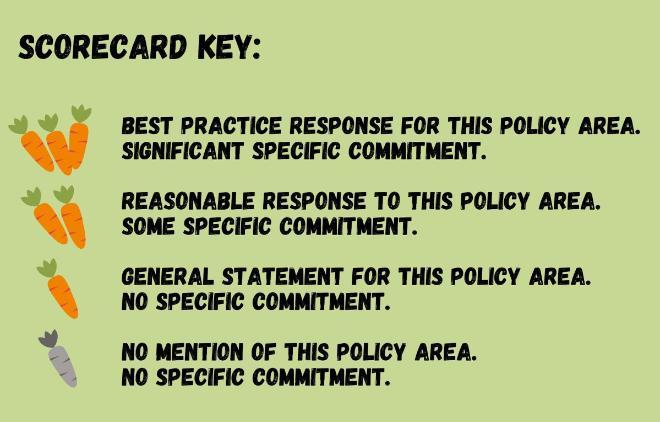The current food system is contributing to climate change and malnutrition in all its forms

Professor Karen Charlton says in order to achieve a "Great Food Transformation", change must occur across all sectors of the food system.
Diet-related ill-health and mental illness cost Australia around $200 billion every year. Climate change costs are anticipated to grow, with extreme weather events alone costing the Australian economy $35 billion over the past decade.
While Australia ranks as one of the most food secure countries in the world at a macro level, at the community level vulnerable communities disproportionately experience barriers to access nutritionally adequate, safe, culturally appropriate and affordable food.
Food insecurity is associated with poor mental and physical health with approximately 800,000 adults per year experiencing food insecurity nationally, a number that is expected to rise in 2023 and beyond. It also impacts on employment, and educational opportunity, particularly for children.
The contemporary food system presents risks not only to human health but also to planetary health, by contributing substantially to climate change, biodiversity loss, depletion of freshwater resources and pollution of waterways [3, 24, 25].
The Great Food Transformation
In order to achieve a "Great Food Transformation", change will need to occur across all sectors of the food system, including more sustainable agricultural practices, less energy use in food processing and transportation, a changed food supply chain and retail sector, significant changes in consumer food choices, as well as strategies that result in less food waste.
In Australia, urgent action is required by all levels of government to create a food system capable of nourishing a rapidly growing population while remaining within planetary boundaries. At an international level, governments, including Australia, have committed to meet targets set within the UN Sustainable Development Goals, the Paris Climate Agreement and the Decade for Action on Nutrition. These national commitments require local action, whereby local governments (LGs) – with their close connections to residents, local businesses, and civil society organisations – are key to the implementation of strategies to bring about change to food environments in which people live, work and play, as well as influence consumer choices.
Local government constraints
However, LGs face a number of legislative, political and financial constraints on their decision-making capabilities, and thus their ability to act on food systems. For example, LGs are the lowest tier of government in Australia and are not recognised in the Australian Constitution. They are created and empowered by state legislation that does not grant them an explicit mandate to act on food system issues, except for food safety.
In addition, some LGs thus may not perceive food as their responsibility, and as they have few opportunities for raising revenue, and may lack the financial resources for policy development and program implementation (Yeatman et al., 2008; Good et al, 2010).
Our policy analysis in NSW and Victoria
In our policy analysis of all LGs in NSW and Victoria conducted in 2019-2020, disparities between states in terms of commitment to food governance was obvious. Only 13 of 207 LGs (6.8%) had a dedicated food system policy, comprising two metropolitan NSW LGs (1.6%) and 11 Victorian LGs (13.9%) (Carrad et al., 2022a).
In a follow-up survey, we investigated policies and programs implemented by local governments (LGs) in NSW and Victoria and found that preventing food waste, organising food-related social/cultural events and providing potable water were the most commonly reported activities contributing to a healthy, sustainable and equitable food system (Carrad et al., 2022b).
Few LGs reported strategies on market gardening or sustainable agricultural practices, or strengthening food system resilience. Enablers of food system work included internal LG support, human resources, external funding and partnerships. Barriers included lack of community interest, short-term and/or project-based funding, internal governance issues and restrictive state government planning frameworks.
Legislative developments
Legislative developments in some states have created new avenues for LG action on food system issues, complementing those available to LGs using their traditional service delivery and regulatory functions. In jurisdictions such as Victoria, South Australia and Western Australia, state public health legislation requires LGs to develop public health plans, which some have leveraged to incorporate diet-related health (Matwiejczyk et al, 2017). For example, Victoria's Public Health and Wellbeing Plan 2019–2023 30 and Climate Change Act 2017 31 provide an opportunity avenue for Victorian LGs to acknowledge how food production and consumption are implicated in climate change, and to adopt and implement related actions.
In November 2022, the NSW Legislative Council Committee on Environment and Planning published Food production and supply in NSW (Committee Report) containing eight findings and 36 recommendations to create a more resilient, sustainable and fair food system in NSW. The Committee Report was based on comprehensive research, investigation and interviews with witnesses representing agriculture, health and education, sustainability, academia and food security sectors and organisations, all with diverse expertise and experience regarding the food system in NSW.
We must act now
Now, more than ever, it is important to recognise the role and responsibility of state governments to facilitate LG action for a healthier, more sustainable and equitable food system. The upcoming NSW election will be contested in the context of substantial cost of living rises, extreme weather and continued pandemic recovery.
In an attempt to better understand the major political parties' commitment to food, Sustain, Food Fairness Illawarra, Australia's Right to Food Coalition, Community Gardens Australia and Young Farmers Connect, together with myself, have released an analysis and scorecard of major parties' policies on food systems, farming and sustainability for the upcoming election.
In preparation for the NSW election, the three major parties were asked to comment on their policies in the following areas, which align with the key recommendations in the 2022 Committee Report:
- Commitment to NSW food system plan
- Collaborative food system governance
- First Nations Peoples' knowledge and skills
- Food security
- Food waste and rescue
- School edible gardens
- Urban and peri-urban agriculture and community gardens / farms
- Regenerative horticulture and agriculture
- Building skills and workforce
The responses from the three major parties, were assessed against a score of 0, 1, 2 or 3 points ("carrots") in each category. Regrettably, the scorecard does not encompass independent and minor parties, even though some are implementing certain, or all, of the recommendations in the Committee Report.

Comments from other members of our team
Dr. Nick Rose, Executive Director at Sustain: "Access to fresh, nutritious food is a fundamental human right, and an essential part of preventative public health. We want to see the next NSW government making a significant investment in a more sustainable food system to improve the health of our population and environment, for the benefit of all Australians."
Berbel Franse, Program Manager at Food Fairness Illawarra: "Food insecurity significantly impacts the health and well-being of individuals and households in our community. The staggering statistic that 1 in 5 households in Australia experienced food insecurity in 2021/22 is a clear indication that urgent and decisive action is needed by the NSW government."
Naomi Lacey, Director of Community Gardens Australia: "Proper government support for community gardens, urban agriculture and local food systems is a seed that sprouts into nourishing and sustainable communities, cultivating not only food security but also social and environmental resilience. We demand that all parties tackle the increasing issues of food supply and security in this upcoming election with the aim of securing a robust food future for us all."
Liz Millen, Right to Food Coalition: "We cannot continue to turn a blind eye to the serious and long-term impacts of food insecurity. It affects children's concentration and educational outcomes, adults' employment opportunities and family relationships. Food insecurity worsens chronic diseases and increases health care costs. Access to affordable healthy food is a key human right, and the NSW government must urgently take steps to see this right is upheld for everyone."
Joel Orchard, Young Farmers Connect: "Our food security depends on the next generation of farmers being resilient in the face of ongoing climatic challenges, disruptions to food chains, and transitions away from petrochemical inputs. We need the NSW Government to back policy changes now, for food systems that are sustainable and regionally appropriate."
References
Carrad A, Rose N, Charlton KE, Reeve B. 2022bFood system policy making and innovation at the local level: Exploring the response of Australian local governments to critical food systems issues. Health Promotion Journal of Australia. Jun 19. doi: 10.1002/hpja.62
Carrad, A. Aguirre-Bielschowsky, I., Reeve, B., Rose, N. & Charlton, K. 2022a. Australian local government policies on creating a healthy, sustainable, and equitable food system: analysis in New South Wales and Victoria. Aust NZ J Public Health 2022; 46: 332-229. Online; doi: 10.1111/1753-6405.13239
Yeatman H. Action or inaction? Food and nutrition in Australian local governments. Public Health Nutr. 2008;12(9):1399–407.
Good E, Hammond M, Martin C, Burns C, Groos A. An audit of local government planning tools for their potential use in addressing community food and nutrition issues. Health Promot J Austr. 2010;21(1): 5–11
Matwiejczyk L, Mehta K, Scott J. Engaging South Australian local governments in the development of healthy eating policies. Health Promot J Austr. 2017;28(2):148–50
Professor Charlton is a research dietician in the School of Medical, Indigenous and Health Sciences.
UOW academics exercise academic freedom by providing expert commentary, opinion and analysis on a range of ongoing social issues and current affairs. This expert commentary reflects the views of those individual academics and does not necessarily reflect the views or policy positions of the University of Wollongong.







